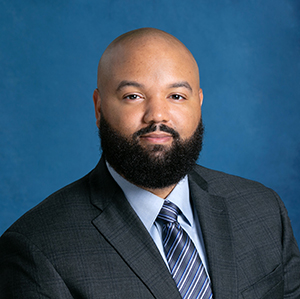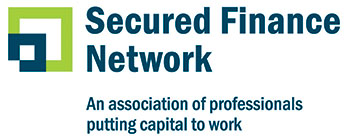
Jonathan Davis
Vice President, Wells Fargo Commercial Capital
Jonathan Davis is a lead underwriter and portfolio manager within the Global Receivables and Trade Finance group within Wells Fargo Commercial Capital. Based in Atlanta, he primarily underwrites new transactions, manages a portfolio of lead accounts and provides support to the originations team.
Prior to his current role, Jonathan joined Wells Fargo as a Customer Service and Sales Representative in their retail division after graduating from Clark Atlanta University, a historically black college/university, with an undergraduate degree in accounting. After a year in retail banking, Jonathan was hired as a collateral analyst in the Receivables Securitization Group. After three years, he transitioned to a senior credit analyst role within the same group.
Born and raised in Decatur, Georgia, Jonathan and his wife, Dedra, have two children. Jonathan has a deep love of sports, and volunteers as a youth coach for various football, basketball, and baseball programs.
What is the best professional advice you have been given, and how have you implemented it?
I would first like to mention that I’ve been fortunate to receive a lot of great advice in my career. Advice from family, friends, colleagues, and managers. Probably the most significant advice came from a cashier (whose name I don’t remember) from my first job at Kroger at the age sixteen.
It was my first day on the job and I was only scheduled for four hours that week. While bagging some customer’s groceries, I asked the cashier who I needed to talk to about getting more hours because I was saving up to buy a car. She responded by saying, “It doesn’t work like that. Once you show your value, then they’ll give you more hours.” She then went on to say, “The more you know and can do… the better you will be.”
The advice of “showing your value” has been at the top of my professional and personal objectives ever since. Demonstrating your value encompasses a strong work ethic, being knowledgeable, adaptable, accountable, punctual, humble… the list goes on. In most cases, people who are able to prove their value within an organization or as an entrepreneur find success and longevity.
What advice do you normally give to the junior talent you mentor?
Some advice I tend to share with junior talent is that your job description will probably just be good enough to keep you employed, but will not lead to your desired career growth. I believe this to be the harsh reality of having to go beyond what is expected in order to compete in today’s environment.
Being concerned about having to do certain job functions that you’re not being technically paid for will stump the growth of your career. Those are the opportunities to show you have additional capacity to take on more and that you are the person for the job.
I understand how frustrating this can be at times, but it’s all about providing value and displaying your potential. In my personal experience, having this mind set has allowed me to fast track my career and take advantage of growth opportunities when they’ve presented themselves.
What are some negotiation tactics you’ve learned over the years?
Before my career in secured lending, most of my work experiences were in sales, and I’ve learned that you have to be prepared to provide your customers with options. Always have alternative solutions, just in case what you are initially selling doesn’t fit. This provides your client with the sense that you are knowledgeable, personable, and that your primary concern is to make sure you meet their needs and they’re satisfied. In my recent dealings, I try to anticipate negotiation points from the customer perceptive and how might we be able to come to a reasonable agreement.
Another tactic I’ve learned, over the years, when dealing with potential customers, is to listen more than you talk. The goal of any negotiation isn’t just to get what you want, but also to help the other side get what they want. Now in order to do that, you need to actually know what the other side wants. I was once told that “Finding common ground means knowing common ground exists” and that “it’s only a great deal if everyone is happy.”
Professional Development Courses
- Live online classes for ABL and Factoring professionals
- On Demand classes in Appraisals, Factoring, Legal, Workout & Bankruptcy
Learn More

.jpg?sfvrsn=f1093d2a_0)
